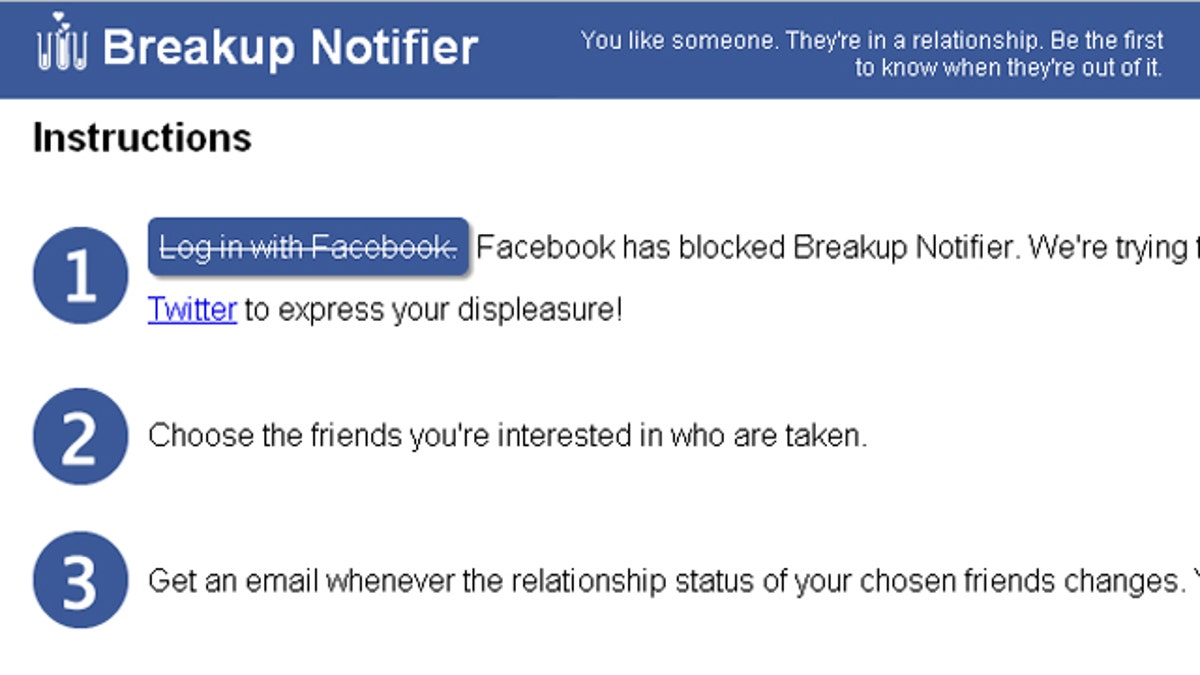
A Facebook app that seemed to facilitate cyber-stalking has been making waves online; Facebook has now shut down the app.
Citizens of the cyberworld breathed a collective sigh of relief Thursday, when Facebook banned a new app that notifies you of relationship status updates for others -- an app widely described as a cyberstalking tool.
Released on Saturday by 24-year-old Dan Loewenherz, the Breakup Notifer app essentially helps you stalk your ex, giving you the power you to monitor the romantic life of select friends in real-time.
"You like someone. They're in a relationship. Be the first to know when they're out of it," says the tagline on the app's website.
The concept became an immense hit, with the site attracting 700,000 visits in the first 36 hours; people downloaded the app 40,000 times. Just days later, the app would have more than 3.6 million downloads and 9,000 Facebook likes.
And just like that, Facebook shut down the app.
"Hey everyone, Facebook e-mailed saying that they've disabled us ... We are working for a fix, but ask @facebook to put us back online!" read a Twitter feed affiliated with the program Wednesday afternoon.
The sudden ban left some users wondering why -- was this a moral this a moral issue? Or perhaps a question of privacy and security?
Facebook later sent Loewenherz an automated e-mail explaining the app removal:
“To ensure positive user experiences on Platform, we run routine automated screens that take user feedback, machine learning and various algorithms into account and remove spammy applications,” the generic message read. “For example, if an application is making an inordinate number of stream.publish calls and receiving a large number of user reports, it may be removed by our automated systems to protect the user experience and the Platform ecosystem.”
In other words, the social-networking site was simply following protocol. The reason for the shutdown, Facebook insists, was the sudden surge in popularity -- not the nature of the app itself.
"Breakup Notifier was temporarily disabled by one of our automated systems, which we have in place to ensure apps on Facebook Platform provide positive user experiences," Facebook spokeswoman Jillian Carroll told FoxNews.com. "These systems have worked well, cutting spam by 95% last year alone. We're currently looking into the issue and have reached out to the developer.”
Loewenherz is now rallying users on Twitter to support the cause, urging them to “ask @facebook to put is back online!”
It may not be long, it seems, before normal stalking can resume.








































